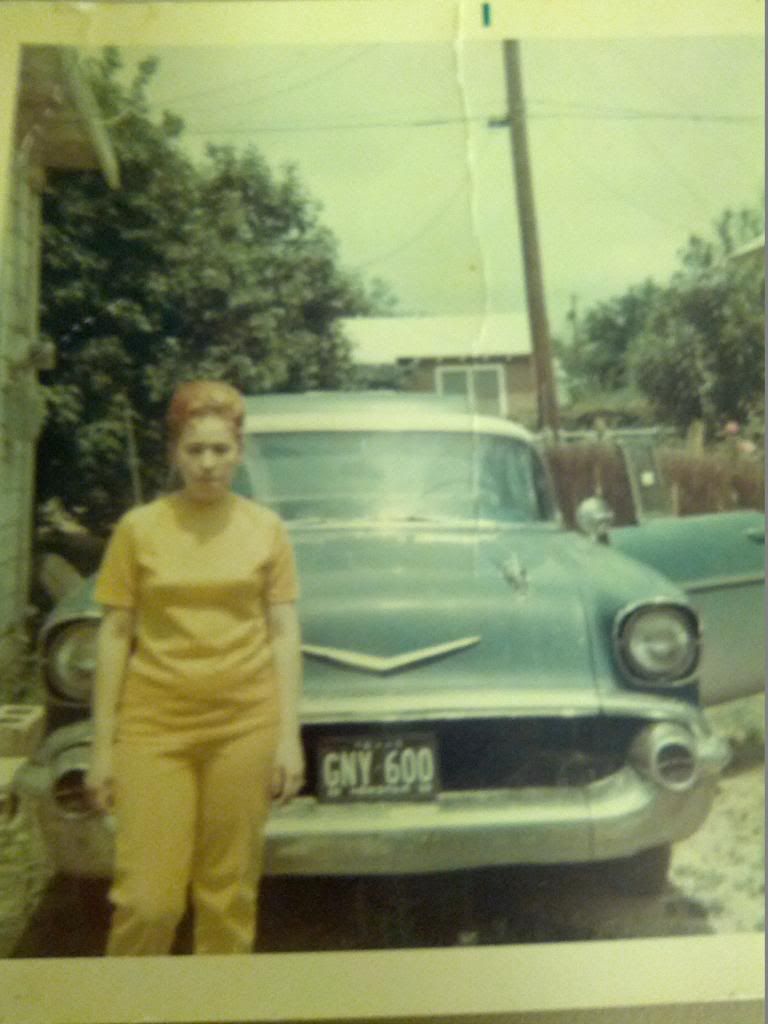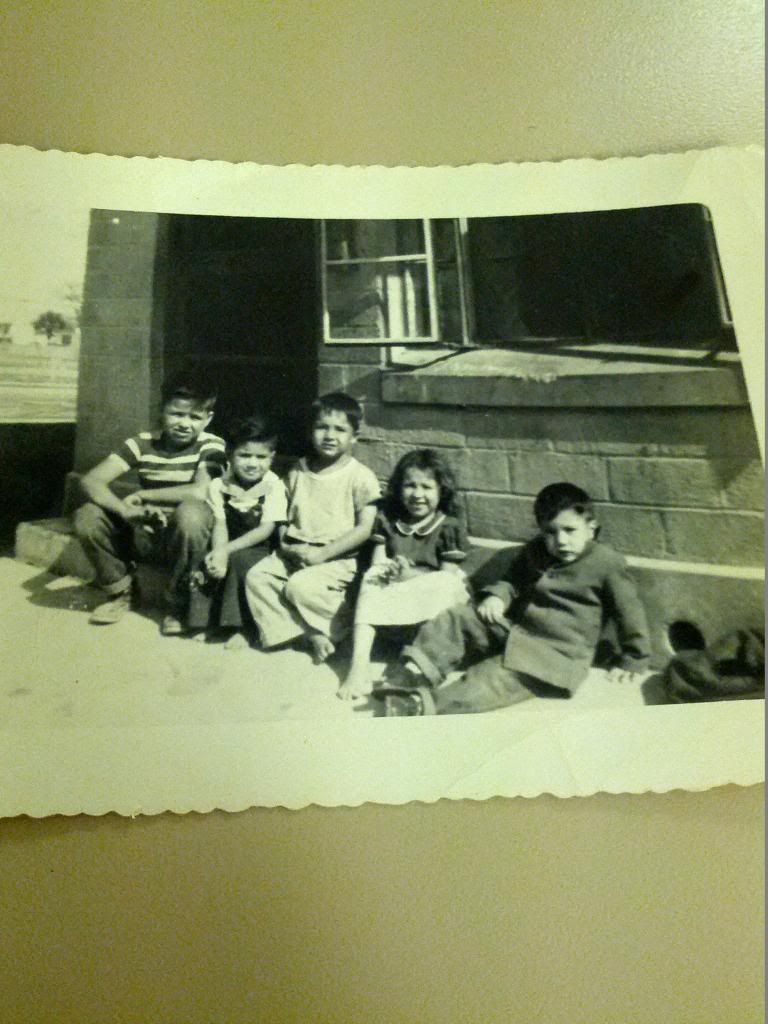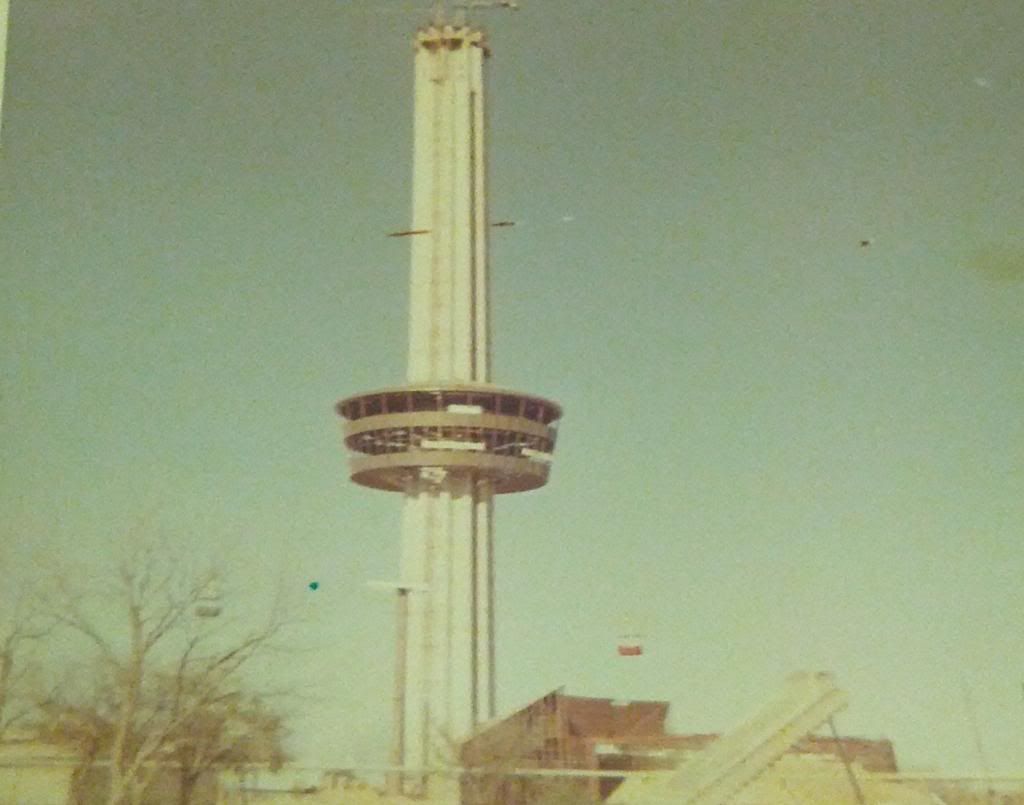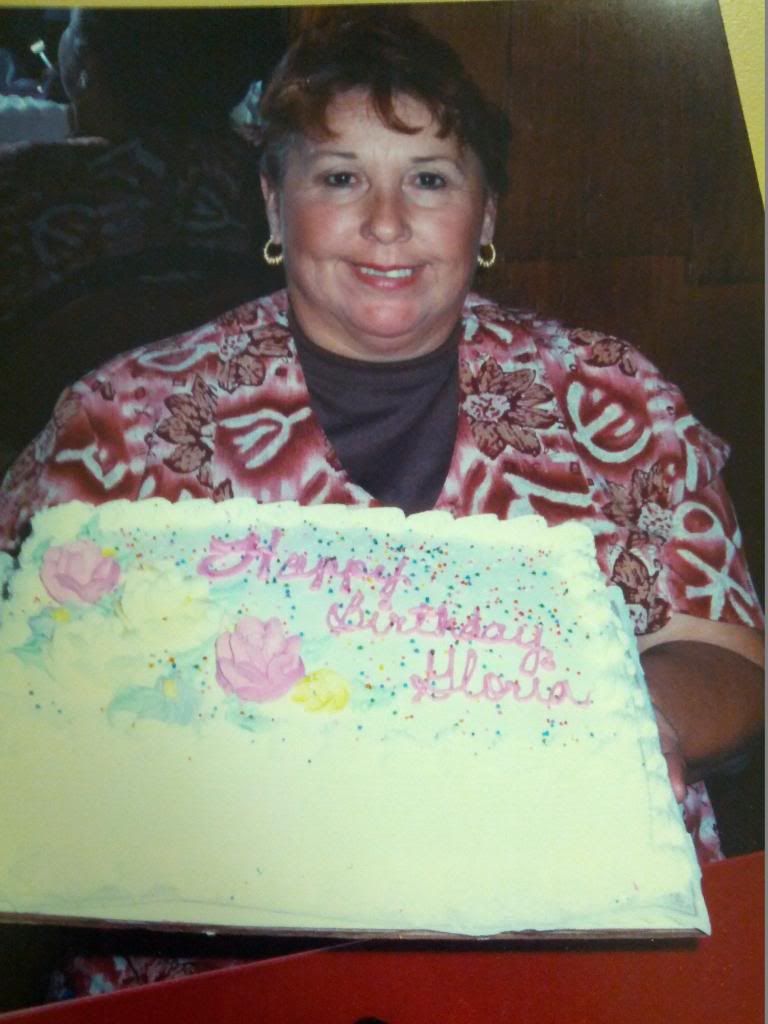TRANSCRIPTION
What was it like growing up being the oldest girl? Did you have a lot of responsibilities?
Yes, I did. By the time, I remember that I was little, I was around about 8 or 9, I would wash dishes, I would sweep, and I like to do a lot of those things because I wanted to help my mom. I would iron, and I remember that we would iron for people. She taught me how to iron. I had a lot of responsibilities, I learned how to do a lot of things, you know. Sweep, mop, cook, a lot of stuff.
What was it like growing up being the oldest girl? Did you have a lot of responsibilities?
Yes, I did. By the time, I remember that I was little, I was around about 8 or 9, I would wash dishes, I would sweep, and I like to do a lot of those things because I wanted to help my mom. I would iron, and I remember that we would iron for people. She taught me how to iron. I had a lot of responsibilities, I learned how to do a lot of things, you know. Sweep, mop, cook, a lot of stuff.

What women role model did you have growing up and why was she your role model?
Uh, I don't know if I had a role model Debbie. Uh, I would go to the Ellison Courts and they had a lot of things going on for kids. I would go for the cooking and I would make cakes and stuff. There wasn't anyone that I could look up to.
What was the music like when you were growing up?
There was no talking music, rap. There was no rap, no dirty rap like it is now. Dirty foul language. There was just like Polkas at that time and then there was like Brenda Lee, "I'm Sorry", you know real nice songs. When we were growing up, it was just Spanish songs that we would sing.

What was your favorite fashion trend growing up?
Petticoats, full skirts or dresses. I loved petticoats. I used to have a rainbow petticoat, and everybody liked that. In the 50's I used to have a flannel skirt with a lamb, and I used to wear that with a pink pull over shirt. I used to wear a lot of those.
How was school like for you growing up?
Uh, for me it was hard. Because when I was little we were brought up speaking Spanish and during our times they wouldn't let us talk Spanish when we were going to Elementary school and it was very hard you know. During that time they would spank you, you know punish you . Not like today man, everything has changed. I was scared that I would get hit so I wouldn't talk, you know, I would keep quiet and just listen but I was absorbing everything around me.
When you were in high-school, did you like school?
Uh, I really didn't because of my accent, you know. I really had problems standing in front of people talking. To me, it was a lot of pressure and I didn't like that. Saying a report in front of kids, people, I would get embarrassed.
Why did you drop out of highschool?
Response
I didn't like school and to me, it felt like it was getting harder and I just didn't like it. I would rather work and slave.
Response
What were your parent's expectations for you growing up?
No, there was no college expected, none of that in our family. If you didn't go to school, you would go to work and that's what it was. When you are young, you don't think about things, like how school is important and all that. Then later, I went and got my GED at John F. Kennedy. I've always wanted to be a nurse. I went to St. Philips college and took a course, Math, English, and Psychology, Anatomy and Physiology, and Child Growth and Development. I said man, I can do it, you know but then I found that I was pregnant and things changed. I quit going and I didn't follow through. So I got job at school, and I started working there and you know, I worked for 30 years and then I retired.
Did you like working at the school?
I loved it working with kids.
So what was required at that time to work at a school, in the classroom as a teacher's assistant?
A GED. We took some classes and took a test.
Was it hard raising four children?
My mom would help me babysit when I was working. I would pay somebody to take care of the girls. It was hard because I didn't have a car, and I would have to take them and walk to the bus stop, early in the morning, like 5 o'clock in the morning.
What was a day like going downtown when you were growing up?
For us to go buy clothes, you know we had to go downtown. There was no shopping malls, none of that. If you wanted clothing you would have to go downtown. Now when I went downtown, it is all different. Its businesses and hotels, its full of hotels down there you know. Its all different. We would go to the movies. They had the Alemeda Theatre, The National Theatre, they had the Texas Theatre and the Majestic, Empire, I mean most of the theatres were downtown. They had three showings, per a theatre. One after another one, and then they would start again. I don't remember having like rated R, like they have now. I would see a lot of Spanish movies, mostly Spanish movies. It cost 10 cents. I would sell newspapers on Sundays, and that money, you know, I would use it to go to the movies. I used to love the Lance golden chips, they were my favorite. I would buy two little packages and a soda and I would sit there and watch the movies and eat them.
What place in San Antonio is somewhere that you miss because it is no longer there anymore?
Those theatres. There was a beautiful theatre too, the Texas theatre.
When was your first time going up the Tower of Americas?
We were amazed how tall it was. We were excited to have something different. A lot of people were afraid to go up it because of the elevator getting stuck. You would read in the paper that the elevator would get stuck and people would have to go through the stairway.

So how has San Antonio changed during your lifetime?
A lot, man now uh, at first there weren't any apartments. The only apartments there were, were the courts. You know, those were the only, you know the Elison courts, the Lincoln courts, all those for low income people. And then they started making apartments, there were no apartments, as far as you know, when we were little. They lived in houses, shacks, you know houses but there were not any apartments. The East side, it was so weird they would stay on their side, the black people, you know. And the north siders were for people that had money and that's the way it was. Then the Southside and the West side was for medium income, the ones that had a little bit of money, mostly Mexican population.
Do you think present day, that San Antonio is still divided like that?
No, people spread all over. Por que, you see a lot of blacks in this side, and Anglos on that side and you know its different now. But everyone had there section way back, but now they are all coming and scattering all over.
What would you say is your biggest accomplishment so far in your life?
I would say learning to drive and having my own vehicle was an accomplishment. I was seventeen when I first got my license. My first car was a studebaker, it was white, Peanut. Before Debbie, when we were young, they used to name the cars and mine was Peanut. That song, Peanut..uh oh uh oh, Peanut.
How was your life different from your mothers or grandmothers?
Well I can see that my mom had so many kids, you know, five sibling four boys and one girl. It was very hard for her, to go to work, feed us, and all that. Now its very different, because theres a lot of daycares. At first there weren't any daycares that I knew of, maybe people or neighbors that would take care of the kids but as far as I know of there wasn't any daycares or any help to take care of the kids. Right now there is help for everything.
How has women's roles changed during your lifetime?
A lot of them when I was growing up, a lot of them would stay at home, some worked. They were responsible for keeping the house clean, washing, taking care of the kids, and they would be there when the kids came home from school. Things have really changed, it's a lot different now. Women can almost do what the men do, you know? It's more equal now. There's more opportunities, a lot of opportunities, in jobs, in education, you know, oh yeah. There is a lot of woman working now, because it's getting really hard because I feel that it takes two to work now because it's too expensive.
Do you think that the inventions that we have today benefit women?
Yes, because I remember that my mom had an iron that she would have to heat it up and iron, then heat it up again. The curling iron wasn't electric, you had to curl it and then heat it up again. I remember that, I remember so clearly, you know?
What is your favorite modern invention?
The washing machine and the dryer. Because we didn't have dryers, they were the old fashioned that would go, "psh psh" and it had a ringer . I remember I got my hands caught in the ringer and man I was screaming. Este no we had a ringer that had an emergency thing that, you know would go back like that and loosen up. It was funny. You would have to put it close to the sink, rinse it out and go backwards. We had clothes lines because we had no dryers.
What jobs were available for women when you first started working?
Eh, not really. I mean things were way different than they are now. I mean things have really changed, you know. The jobs that I had, when I was 15, I lied and worked at the Gunther Hotel as a busgirl. They don't give you a job until you were 16 but I was 15, so I started working at 15. We would take the bus and come back in the bus. After that I worked at Gomez Tamales, I worked there on Culebra. We worked on the, what was it? They had this machine in the middle and we had to fix the husks, you know on the right side because there's a soft side and a rough side, so we had to fix them because the girl that was in the middle, the masa was coming out, it would come out on the outside and then in the middle of the machine. We would put six together, and it was all girls. It was all ladies that worked there. Man, fights left and right, I mean man, it was like, "No que you" and there was some that sang real pretty. Some of them were singing working, you know. It was a lot of fun.
Do you think when you were first working; men and women had equal rights in regards to employment?
No, no, no, we didn't see it like that. Theres a lot of difference because when theres women theres always fights. Usually when there is male supervisor, theres more respect I think. I don't know why, but that's the way it was. I guess este, men had the say so. Women were not in high positions at that time.
What advice would you give women of today's generation?
Right now, you need to get educated. You can have kids later, educate yourself. If you find a right man, keep him. Just strive because life is hard, it's very hard.
Is there anything else you would to add to this interview?
Well, I can say a lot of things pertaining the Lord. Well, I say that if I had known the Lord in my early years, my life would have been different. I would have made a better choice to my younger life and I wouldn't have gone through what I went. I didn't think that I was that intelligent and had childish thinking.
ANALYSIS
I interviewed my grandmother Cecilia Hernandez. When I conducted this interview, I didn't know what to expect really, or what I would learn from interviewing her. When I interviewed my grandmother, I found out a lot of things that I never knew about her life. For example, I never knew that my grandmother dropped out of high school or her dream career was to be a nurse. When she described the stories to me in the interview, she expressed so much joy and emotion. She became really animated and was very into the interview. In the interview she told me stories about what it was like for her growing up and how San Antonio has changed. The hardest thing for me to hear during the interview was how much difficulty she had in school and I feel that if she had more support, that she would have a different perspective but because she wasn't allowed to talk in Spanish or felt ashamed of her accent, this hindered her academic progress. These events that happened in her life, helped shape who she is today. It was interesting to hear her perspective of how she viewed different time periods of her life. The drawbacks of this interview was that it was hard to pinpoint an exact date of when these events occurred. I researched certain placed that she told me such as the theatres downtown and the places that she worked. The most important point that my grandmother brought up was that sometimes when we are young, we don't realize that education is important. This is something that holds true today. Overall, I feel that doing an oral history project such as this one, is an effective way to learn about the past because you are hearing stories from people that were there during that time period. The dates may not be the most accurate but history is all about who's telling the story. Everyone has a different view on the time period that they have lived, and the more stories you hear, the more knowledgeable you will become
TIMELINE
- Cecilia Hernandezborn Born on November 22, 1945 in San Antonio, Texas
- Brother Gilbert Pastrano born August 8, 1946
- Brother Thomas Pastrano born December 23, 1949
- Brother Joe Luis Pastrano born August 30, 1953
- Worked at the St. Anthony Hotel in San Antonio, Texas in 1960
- Daughter Sandra was born on February 20, 1965
- Daughter Belinda was born December 13, 1966
- Worked at the Santa Rosa Hospital (1966-1970)
- Received her GED on April 8, 1974
- Worked at Esparza Elementary School in (1964-1974)
- Son James was born on December 10,1974
- Daughter Laura was born January 20, 1976
- Worked at Lawrence Powell Elementary (1975-1985)
- Worked at Adams Hill Elementary School (1986-1996)
- Interviewed by Deborah Angulo on April 6th 2014
ANNOTATED BIBLIOGRAPHY
Return to Oral History Projects
14:27 1/31/2012

